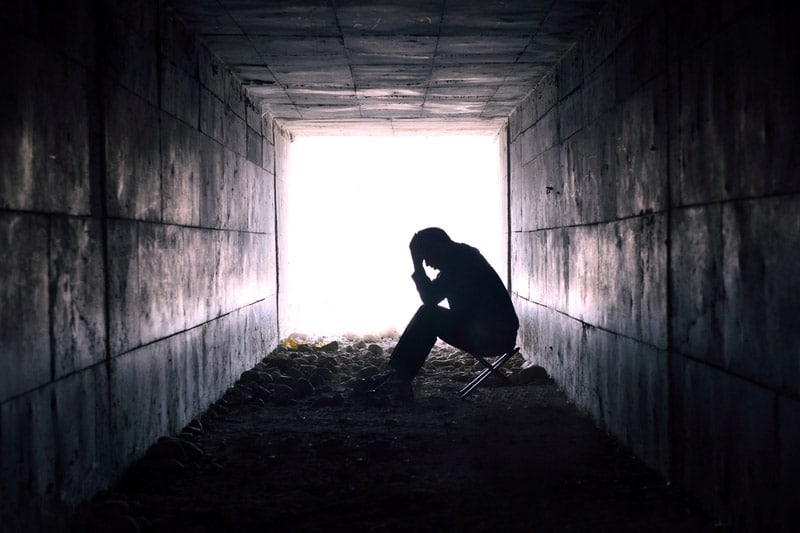
There are few subjects more depressing and tragic than suicide. It’s not a topic people like to talk about. When people take their own lives, either out of sorrow or desperation, it’s terrible. It leaves deep, painful scars on friends and loved ones.
However, it’s because suicide is such a difficult subject that people should talk about it. Before I go any further, I want to urge anyone who might be feeling deeply depressed or suicidal to seek help. The suicide hotline is always available. Please, if you’re feeling that hopeless, call 1-800-273-8255. As someone who has had depressing stretches in life, I urge others in a crisis to seek connection.
Unfortunately, it’s not a connection that people are making these days. According to the American Psychological Association, there was a 30 percent increase in death by suicides from 2000 to 2016. It was the 10th leading cause of death in the United States in 2016. By the numbers, we haven’t seen rates like this since the Great Depression.

There are a great many depressing and tragic factors behind this rise. The ongoing opioid crisis is certainly a factor. A few researchers have cited the influence of social media as contributing to self-destructive behavior. Like mass shootings, everyone has their theories, criticisms, and solutions to the crisis. I’m of the opinion that human beings are too complex to boil it down to something simple.
I agree that in certain cases, opioid addiction can factor into someone committing suicide.
I agree that in certain cases, the use and influence of social media can factor into someone committing suicide.
That’s not to say they’re the cause of it. They’re just small trees in a much larger forest that’s difficult to see, given the heavy emotions involved in this topic. However, I do believe it’s possible to see that bigger picture. To do so, it’s necessary to highlight one particular trend in suicide that also happens to be tied with gender politics.

While suicide is tragic, regardless of gender, there exists an unusual paradox within the data. Women have been shown to attempt and contemplate suicide more than men, but men are still the ones dying at greater rates. It’s not a trivial gap, either. Men are more than three times as likely to commit suicide compared to women.
This indicates there are factors beyond depression, stress, and mental illness. There are other forces at work here and they’re affecting men more than women. What that is and how it works is difficult to surmise. However, speaking as a man who has seen other men endure depressing situations, I believe there are certain factors that gender politics compounds.
At the core of these factors are an individual’s sense of purpose and value. There are many terrible things running through the mind of someone who is suicidal, but it’s not unreasonable to suspect that people who feel suicidal often feel their lives lack purpose and value. There’s nothing left for them to contribute. There’s no value for them to provide. Without that, what’s the point?

It sounds like the kind of sentiment that should affect men and women equally. Depression and despair, after all, know no gender. However, there are a few confounding factors for men. For one, there’s still a significant taboo for men who admit to even having such feelings. It stems from the same taboo about men showing emotions, in general. It’s seen as a form of weakness and men aren’t allowed to be weak.
To understand the implications of that taboo, consider the following scenario.
A man is sitting by himself. He’s crying uncontrollably. He’s sad, depressed, and lonely. He feels like he has nothing to live for. Someone walks by and shows concern. They listen to him lament about his sorrow. They offer sympathy, but tell him he needs to toughen up and get his act together. He just needs to grit his teeth and push forward with his life.
For most people, this scenario isn’t that unrealistic. Most decent human beings will show sympathy when they see someone suffering, male or female. However, the gender of the person suffering does have an impact. I’ve explained before how and why society places a greater emphasis on protecting women’s bodies over those of men.
Even if you discount the extent of that influence, the implications are still clear. We see a depressed man and tell him to fight through it. If he needs to be coddled or treated, then that’s a failure on his part. If he’s that weak, then he has little value to offer. Without value, he has little purpose as well. In essence, he has to prove he’s somehow useful to warrant not killing himself.
Now, consider this scenario.
A woman is sitting by herself. She’s crying uncontrollably. She’s sad, depressed, and lonely. She feels like she has nothing to live for. Someone walks by and shows concern. They listen to her about her sorrow. They offer sympathy and encourage her to find professional help. They even offer contacts and connections. She’s suffering and there are people willing to help her.
Take note of the different approach in this scenario. The person still show sympathy and compassion, as most human beings are wired to do. Where they diverge is in the assumptions surrounding the woman’s distress.
For her, it’s not something she can tough her way through. She’s not expected to just grit her teeth, pull herself out of this deep pit, and move beyond whatever is making her so upset. She’s suffering and the first instinct is to get her some meaningful help. Her life has inherent value. Her just being alive is sufficient to give her purpose.

It’s impossible to overstate the importance of that assumption. It’s an assumption that many men feel like they don’t get. Their suffering is seen as a personal failure. A woman’s suffering is seen as a systemic failure that needs fixing. It perfectly reflects one of Chris Rock’s most memorable quotes.
“Only women, children, and dogs get loved unconditionally. A man is only loved under the condition that he provides something.”
In the context of suicide, men who don’t provide anything have no value. Absent that value, they have no purpose for existing. The source of this disparity is difficult to pin down. Some of it is cultural. Most data shows that when people live in a society with high social cohesion and abundant career opportunities, suicide is low.
That makes intuitive sense. Those social bonds provide purpose. Those opportunities provide value. When people have both, they’re less likely to be depressed. Even if they are, they have a support system that’s there to help them, regardless of their gender or disposition. These bonds are harder to maintain for men because they have to provide something.

Even though women may contemplate or attempt suicide more frequently, the current makeup of society and gender norms provides them with any number of affirmations to remind them of their value. If nothing else, it gives women a moment of pause. Most men don’t get that moment. It’s truly tragic, but it’s a tragedy that gender politics does plenty to compound.
Again, if you are feeling suicidal, regardless of your gender, please take this as my personal plea to seek help. It’s okay to do so. Your life has value. Your life has purpose. Call 1-800-273-8255 if you need to talk. People will listen. People will give you a chance. Whatever the disparities may be, let’s not add to the tragedy.


